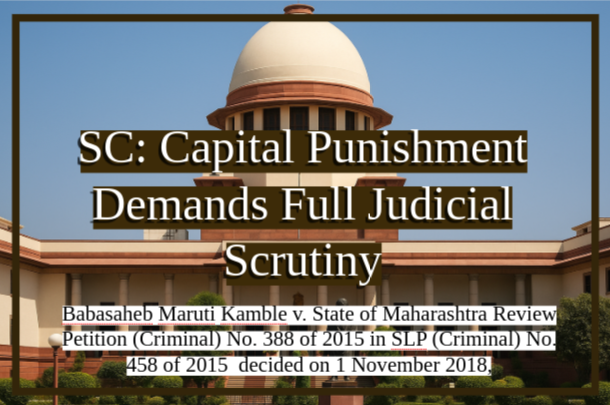SCOI Upholds Conviction under POCSO and SC/ST Act: Limits on Declaring Witnesses Hostile Reaffirmed
- M.R Mishra

- Oct 15, 2025
- 2 min read
In a significant pronouncement in Shivkumar @ Baleshwar Yadav v. State of Chhattisgarh (Criminal Appeal No. 4502 of 2025), the Supreme Court reaffirmed the evidentiary discipline required under Section 154 of the Evidence Act (now Section 157 of the Bharatiya Sakshya Adhiniyam, 2023),
while upholding a conviction under the Indian Penal Code, the Protection of Children from Sexual Offences (POCSO) Act, and the Scheduled Castes and Scheduled Tribes (Prevention of Atrocities) Act.
What's The Matter?
The appellant was convicted for offences under Sections 363, 366, 376, and 506 IPC, Section 4 of the POCSO Act, and Section 3(2)(v) of the SC/ST Act for kidnapping and sexually assaulting a minor girl belonging to a Scheduled Caste.
The Trial Court sentenced him to life imprisonment under the SC/ST Act, with other sentences running concurrently. The High Court of Chhattisgarh affirmed the conviction in 2023.
What Court Said?
The Supreme Court was called upon to examine not only the evidentiary sufficiency behind the conviction but also the procedural propriety of the prosecution declaring its own witness the victim’s father hostile without justification.
Justice K.V. Viswanathan, writing for the Bench, issued a stern reminder to trial courts and prosecutors that declaring a witness “hostile” is an extraordinary measure, not a routine procedural shortcut. Citing Sri Rabindra Kumar Dey v. State of Orissa (1976) 4 SCC 233 and Gura Singh v. State of Rajasthan (2001) 2 SCC 205, the Court reiterated that:
“The discretion to cross-examine one’s own witness under Section 154 of the Evidence Act must be judiciously exercised only where there is clear material to show hostility or deviation from prior testimony.”
The Bench noted that prosecutors often seek to treat witnesses as hostile for “no ostensible reason,” and courts grant such permissions “indiscriminately.” This, the Court warned, undermines the integrity of evidence and the fairness of trial.
On the question of the victim’s age, the Court upheld the admissibility of the school admission register under Section 35 of the Evidence Act, citing State of Chhattisgarh v. Lekhram (2006) 5 SCC 736.
The register, supported by the teacher’s testimony, established the victim’s date of birth as 15 September 2004 confirming her minority at the time of the incident in May 2018.
Medical evidence reinforced the prosecution’s case, showing fresh injuries consistent with forcible sexual intercourse. Forensic reports confirmed semen traces on the seized garments of both the victim and the accused.
The Court underscored that under the post-2016 amendment to Section 3(2)(v) of the SC/ST Act, knowledge of the victim’s caste suffices to invoke the provision intent to commit the offence on the ground of caste is no longer required. Referring to Patan Jamal Vali v. State of Andhra Pradesh (2021) 16 SCC 225 and Section 8(c) of the 2015 Amendment, the Court held that since the accused was acquainted with the victim’s family and aware of her caste, the conviction under the SC/ST Act was justified.
The Supreme Court found the conviction well supported by both direct and circumstantial evidence. The testimony of the minor victim remained consistent, corroborated by medical and documentary proof. The Court thus upheld the concurrent findings of the lower courts and dismissed the appeal.







Comments